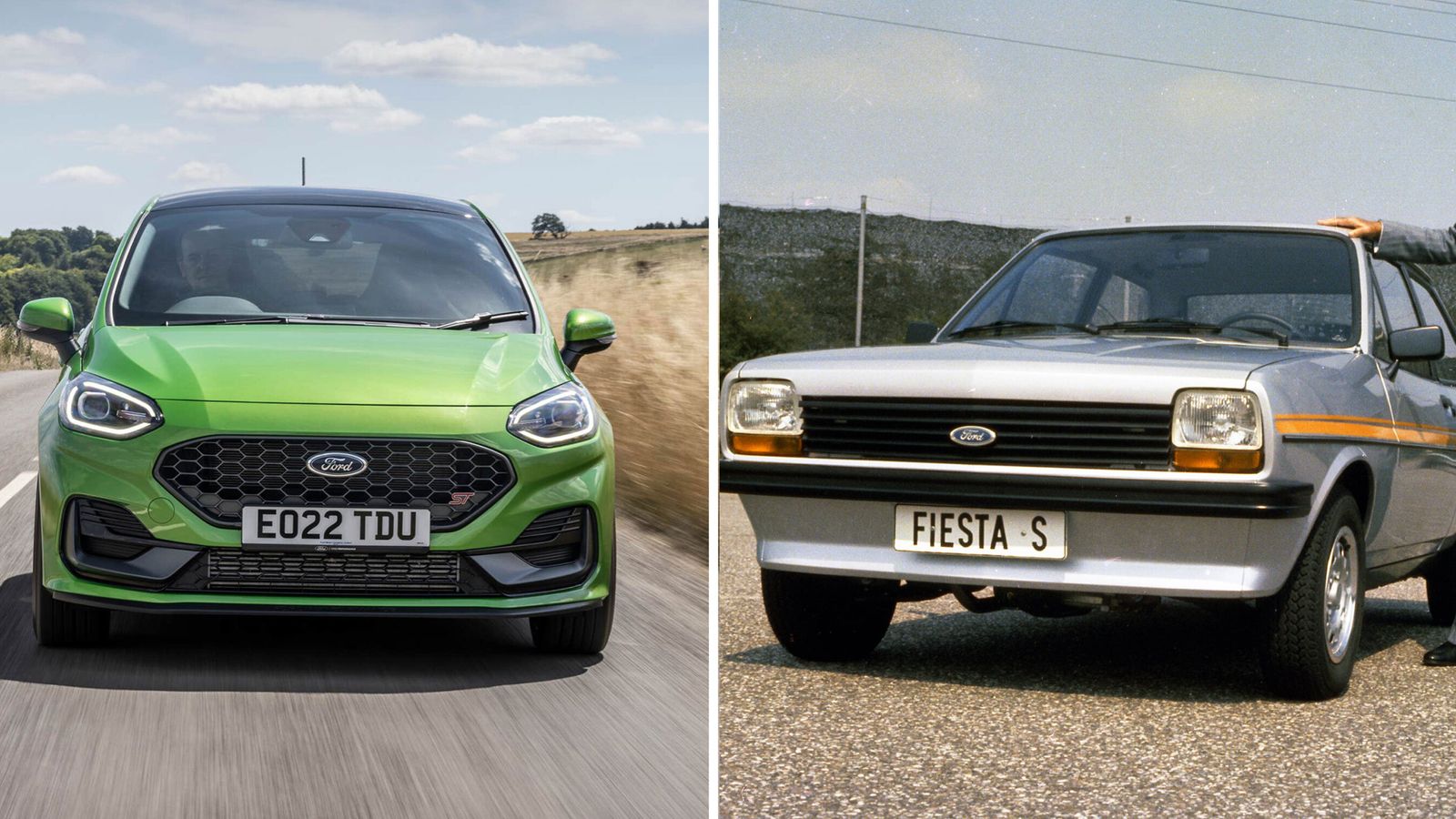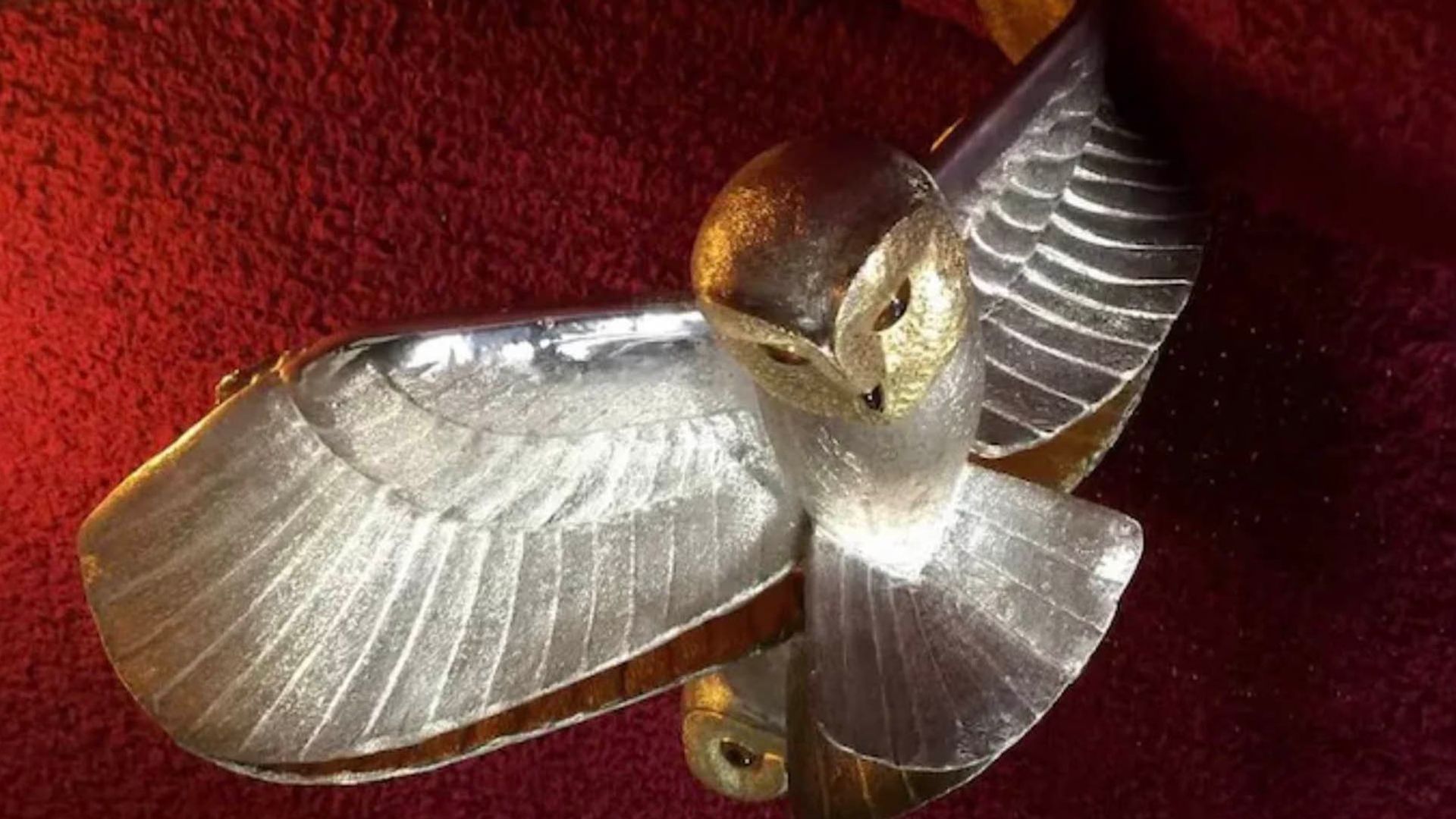After 47 years, one of Britain’s favourite cars is finally heading to the scrapyard.
By the end of June 2023 Ford has said it will have produced its last ever Fiesta, which first appeared in showrooms in 1976.
Spending several years at the top of sales lists, the compact, cheap-to-make, cheap-to-run car has been through eight generations.
And as its US manufacturer declared the model’s “job is done” and it moves to focus on electric ones instead, nostalgic Britons have praised its “iconic” rise to dominance.
Response to 1973 oil crisis
The very first Fiesta rolled off the production line in Valencia in 1975, with Henry Ford II choosing a suitably Spanish name to mark its roots.
It was developed in response to the 1973 oil crisis, which saw the price of fuel rocket and motorists needing a more economically efficient car.
Ford to end production of Fiesta cars as it increases range of electric vehicles
Ford joins motor industry race to all-electric future
Ford to get £500m of taxpayer backing to protect jobs
Ford’s rivals Fiat, Renault and Volkswagen had already beaten them to it.
But seeing what its competitors had to offer meant that when ‘Project Bobcat’ finally had its first Fiesta ready for sale, it was a more comprehensive offering.
It was first produced in the UK, at Ford’s famous plant in Dagenham, Essex, in 1977 – the same year it appeared alongside Roger Moore in the James Bond film The Spy Who Loved Me.
By 1980, one million Fiestas had been sold worldwide, increasing to two million by 1982.
This was when it became clear it had won British hearts, becoming the UK’s best-selling car.
It remained at the top spot here and in Germany for six years until 1986.
In 1993, in response to increasing concerns about passenger safety, air bags were made standard in all Fiestas.
It had another stint as Britain’s bestseller between 1996 and 1998.
UK production ends
As Ford focused on global domination, the British Fiesta operation came under threat.
Following rival Rover’s sale for just £10, staff at the Dagenham plant staged protests to warn bosses against job cuts.
But while Ford branched out to new markets like China, in mid-2000 it was announced that Fiesta production in the UK would end at Dagenham by 2002.
With almost 2,000 redundancies there, production of the Fiesta was moved to Cologne, Germany.
In 2013 the Dagenham Ford plant was demolished.
Household name popular with celebrities
But despite it no longer being made in the UK, the Fiesta stayed a popular choice with Britons.
Around the turn of the millennium it famously brought two people together in holy matrimony.
RAC worker Carlos Villamore fell in love with Charlotte Wood when he went to repair her broken-down Fiesta after it came to a halt at a roundabout in Welwyn Garden City, Hertfordshire.
They posed for pictures with her beloved car when they got married in June 2000.
The following year, 22-year-old art student Marian Downes lost a whole year’s work inside her sister’s car when it was stolen and left burnt out.
But instead of being resigned to failure, she decided to make the torched-out vehicle the subject of her final year piece at Sunderland University.
More generally it became a popular choice for first-time drivers and benefited from an increase in female commuters.
The Fiesta also received celebrity endorsements – from the models Nell McAndrew and Jodie Kidd.
Actor Idris Elba claimed he spent two years building parts for Fiestas at the Dagenham plant before his TV and film career.
Throughout the early 2000s TV personalities such as Alesha Dixon and Peter Andre were also involved in new model launches.
Move towards electric threatens future
Despite new features such as keyless start and hybrid technology, the Fiesta has been trumped by its rivals in recent years.
Among Ford’s offerings, buyers have opted for newer models such as the Puma, while its rival Vauxhall hit the top spot for best-selling car in the UK with the latest Corsa in 2021.
According to the Society of Motor Manufacturers, the Fiesta was still the sixth best-selling new car in the UK in September.
But more broadly it has failed to appear in the top 10.
Deciding to end production next year, Ford is looking towards the 2030 UK ban on new diesel and petrol cars.
It has said it will only sell electric vehicles in Europe from that point on.
The Fiesta hasn’t been the only victim of the move toward sustainable technology, however, with the Focus recently dropped too – and no electric alternative in the pipeline.
‘Not a big or fancy car – but people loved it’
Fiesta lovers bemoaned Wednesday’s announcement on social media after Ford published a montage of the car throughout the decades.
“It wasn’t a big car, not a fancy car, but the people loved it,” the clip reads.
The tweet adds: “It’s time to say goodbye to the little car that has touched us all. The big moments, the little moments, and all the ‘firsts’ – thanks for the memories.
“As one era ends, another is just getting started – we can’t wait to show you what we’ve got coming.”
Responding to it on social media, Britons shared their anecdotes of owning Fiestas – with many asking why the model couldn’t be made electric – and others referring to it as a “British icon”.







